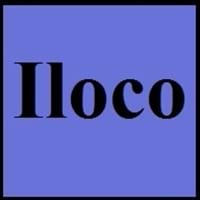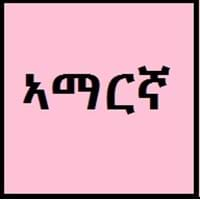Ilocano and Amharic
Countries
Philippines
Federal Democratic Republic of Ethiopia.
National Language
Philippines
Ethiopia
Second Language
Not spoken in any of the countries
Not spoken in any of the countries
Speaking Continents
Asia
Africa
Minority Language
Not spoken in any of the countries
Not spoken in any of the countries
Regulated By
Commission on the Filipino Language
Not Available
Interesting Facts
- Ilocano was originally written with Baybayin syllabary, then gradually it was replaced by Latin alphabet.
- Northwest Luzon is the original Ilocano homeland.
- Amharic ranks as second most spoken Semitic language in the world.
- Amharic has its own writing system named “fidel” and it uses Amharic alphabets to write.
Similar To
Tagalog, Indonesian and Malaysian Languages
Not Available
Derived From
Not Available
Not Available
Alphabets in
Ilocano-Alphabets.jpg#200
Amharic-1.jpg#200
Scripts
Ilokano Braille, Latin
Ethiopic
Writing Direction
Not Available
Left-To-Right, Horizontal
Time Taken to Learn
Not Available
Thank You
Agyamanak
amesege'nallo'
How Are You?
Kumusta?
Dehina newot?
Good Night
Naimbag a rabii
Dehna dur
Good Evening
Naimbag a sardam
melkam meshe't
Good Afternoon
Naimbag a malem
i'ndemin walu
Good Morning
Naimbag a bigat
i'ndemin adäru
Please
Not available
i'bakwon
Sorry
Agpakawanak
aznallehu
I Love You
Ayayatenka
afekirishalehu
Excuse Me
Maawan-dayawen
yiqirta
Dialect 1
Balangao
Gondar
Where They Speak
Philippines
Gondar
How Many People Speak
Not Available
Where They Speak
Philippines
Ethiopia
How Many People Speak
Not Available
Dialect 3
Not present
Showa
Where They Speak
Not present
Ethiopia
Second Language Speakers
Not Available
Native Name
ilokano
Not Available
Alternative Names
Ilokano, Iloko
Abyssinian, Amarigna, Amarinya, Amhara, Ethiopian
French Name
ilocano
amharique
German Name
Ilokano-Sprache
Amharisch
Pronunciation
Not Available
[amarɨɲɲa]
Ethnicity
Ilocano people
Amharas
Origin
18th Century
13th century
Language Family
Austronesian Family
Afro-Asiatic Family
Subgroup
Not Available
Semitic
Branch
Not Available
Ethiopic
Early Forms
No early forms
Ge'ez
Standard Forms
Modern Ilocano
Amharic
Signed Forms
Not Available
Signed Amharic
Scope
Individual
Individual
ISO 639 1
No data available
am
ISO 639 6
Not Available
Not Available
Glottocode
ilok1237
amha1245
Linguasphere
31-CBA-a
12-ACB-a
Language Type
Living
Living
Language Linguistic Typology
Not Available
Not Available
Language Morphological Typology
Not Available
Fusional
All Ilocano and Amharic Dialects
Most languages have dialects where each dialect differ from other dialect with respect to grammar and vocabulary. Here you will get to know all Ilocano and Amharic dialects. Various dialects of Ilocano and Amharic language differ in their pronunciations and words. Dialects of Ilocano are spoken in different Ilocano Speaking Countries whereas Amharic Dialects are spoken in different Amharic speaking countries. Also the number of people speaking Ilocano vs Amharic Dialects varies from few thousands to many millions. Some of the Ilocano dialects include: Balangao, Bontoc. Amharic dialects include: Gondar , Gojjami. Also learn about dialects in South American Languages and North American Languages.
Ilocano and Amharic Speaking population
Ilocano and Amharic speaking population is one of the factors based on which Ilocano and Amharic languages can be compared. The total count of Ilocano and Amharic Speaking population in percentage is also given. The percentage of people speaking Ilocano language is 0.14 % whereas the percentage of people speaking Amharic language is 0.37 %. When we compare the speaking population of any two languages we get to know which of two languages is more popular. Find more details about how many people speak Ilocano and Amharic on Ilocano vs Amharic where you will get native speakers, speaking population in percentage and native names.
Ilocano and Amharic Language Codes
Ilocano and Amharic language codes are used in those applications where using language names are tedious. Ilocano and Amharic Language Codes include all the international language codes, glottocodes and linguasphere.





